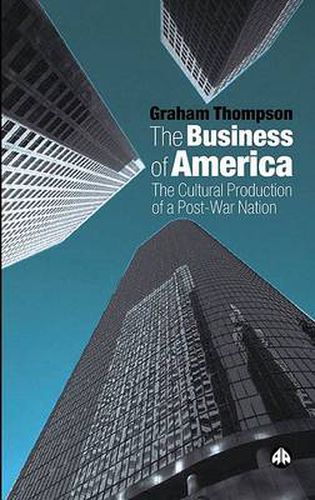Readings Newsletter
Become a Readings Member to make your shopping experience even easier.
Sign in or sign up for free!
You’re not far away from qualifying for FREE standard shipping within Australia
You’ve qualified for FREE standard shipping within Australia
The cart is loading…






White male literary culture in post-war America has often dealt with the subject of ‘business’. They have marked out an emotional field in which white men struggle with the disturbing experience of an increasingly transnational business culture – a culture that threatens supposedly ‘American’ values such as the individual, the family, or freedom. By comparison, literature by women and by writers from different ethnic and sexual groups during this period addresses economic issues from the more localised angle of ‘work’. / Graham Thompson shows how this attention to work provides a less abstract approach to the relationship between capitalism and America. He explains how it sheds light not only on the economic underpinnings of the transnational cultural condition, but also on the way that American Studies emerged as a discipline after the Second World War – as an attempt to bind together the study of nationhood, business and cultural production.
$9.00 standard shipping within Australia
FREE standard shipping within Australia for orders over $100.00
Express & International shipping calculated at checkout
White male literary culture in post-war America has often dealt with the subject of ‘business’. They have marked out an emotional field in which white men struggle with the disturbing experience of an increasingly transnational business culture – a culture that threatens supposedly ‘American’ values such as the individual, the family, or freedom. By comparison, literature by women and by writers from different ethnic and sexual groups during this period addresses economic issues from the more localised angle of ‘work’. / Graham Thompson shows how this attention to work provides a less abstract approach to the relationship between capitalism and America. He explains how it sheds light not only on the economic underpinnings of the transnational cultural condition, but also on the way that American Studies emerged as a discipline after the Second World War – as an attempt to bind together the study of nationhood, business and cultural production.